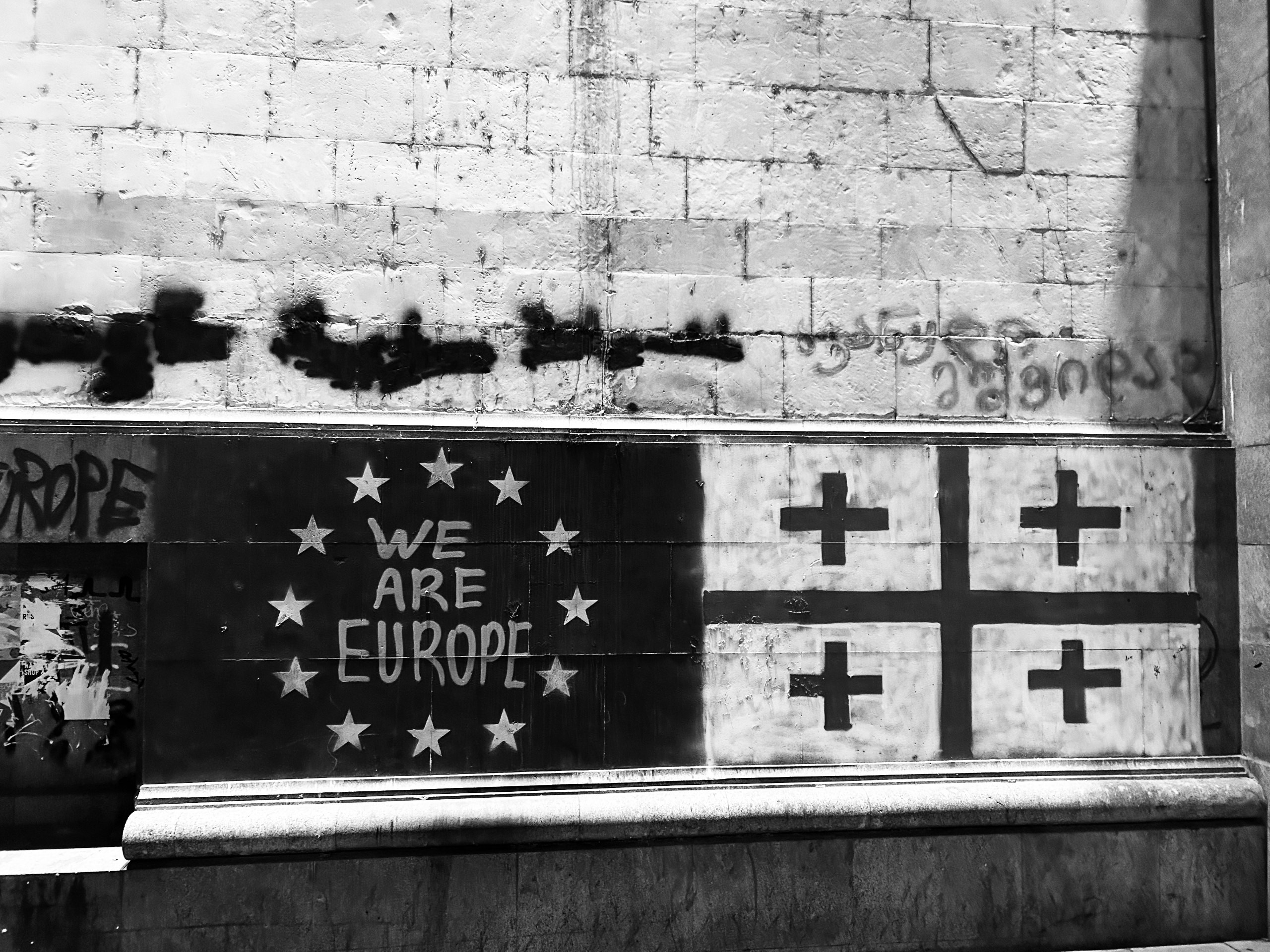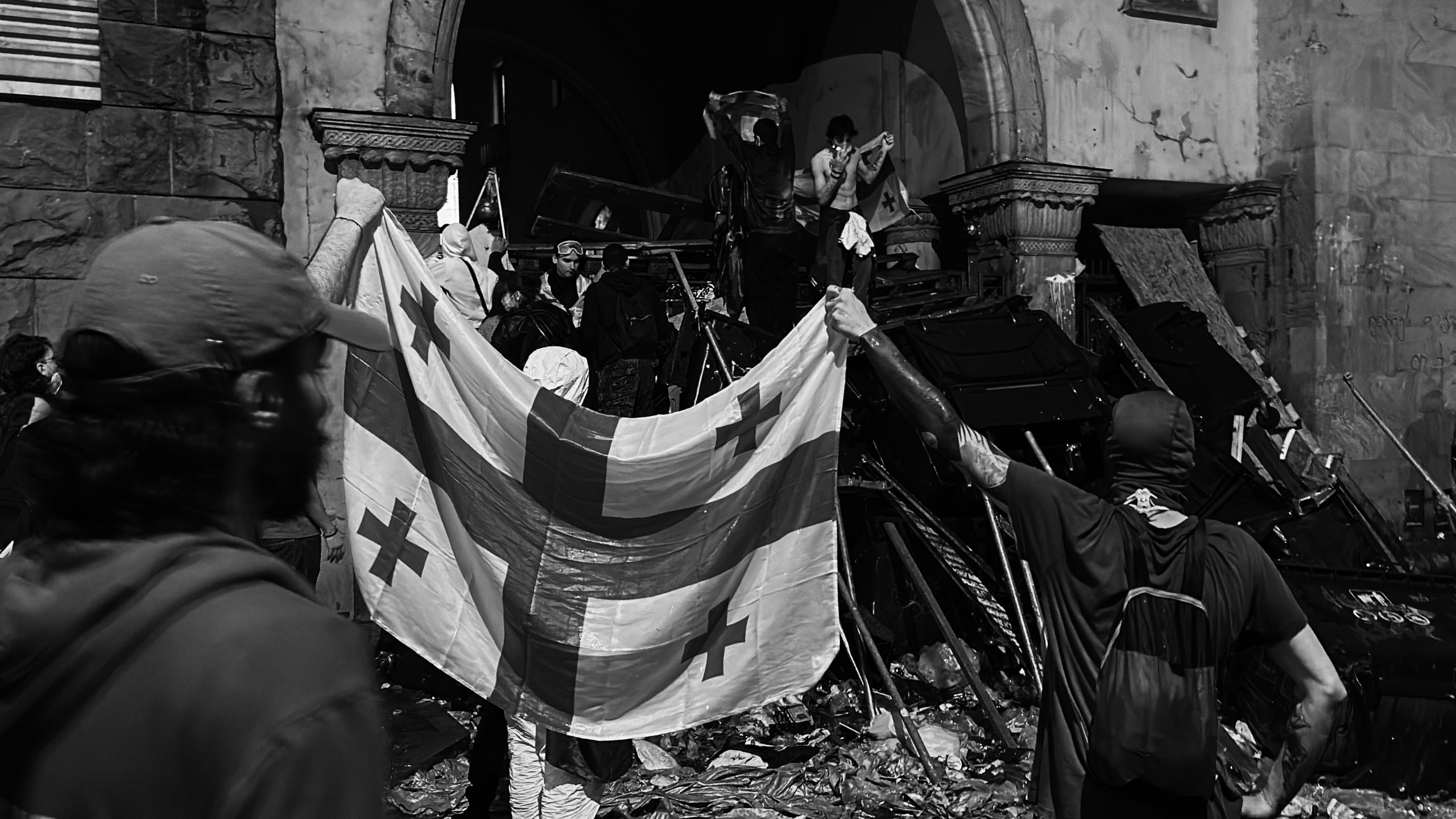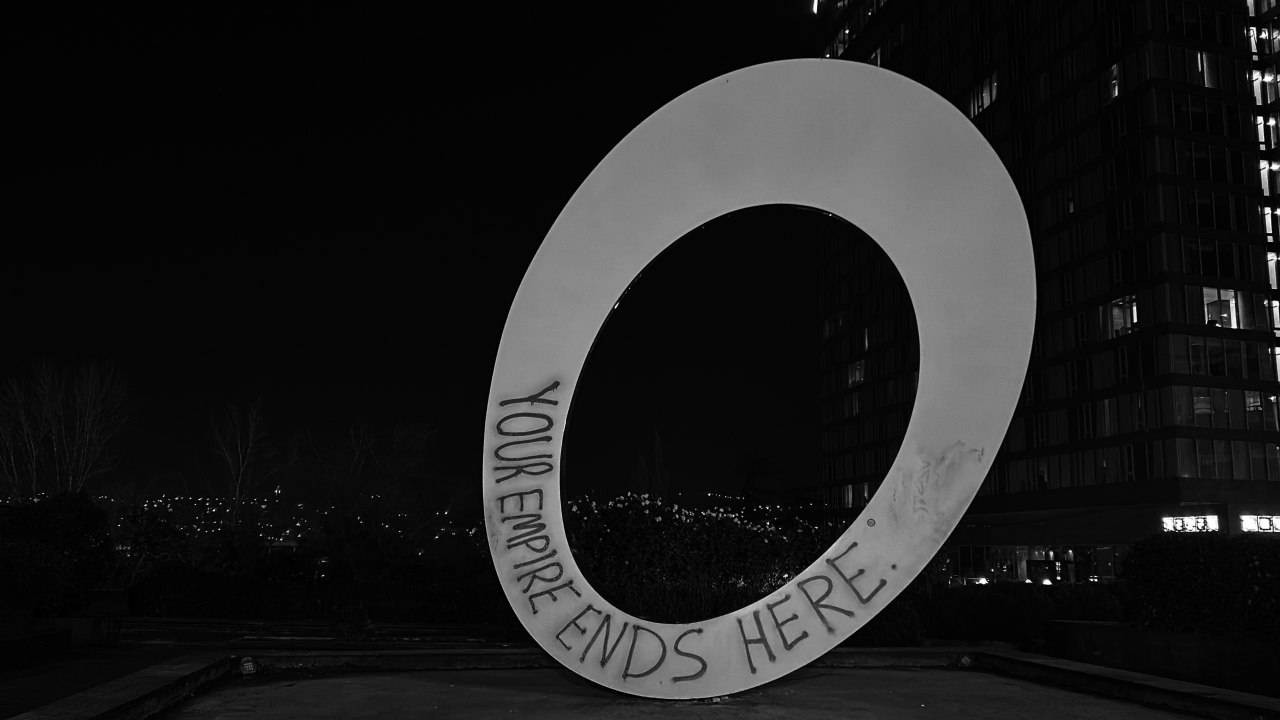Sakartvelo's political prospects
text: media resistance grоup
We interviewed Levan Kakhishvili, a researcher at the European Policy Research Group at the Swiss Higher Technical School of Zurich.

— What are the main threats for Sakartvelo now that after the "victory",
or better say, the falsification of the elections by the 'Georgian
Dream'?
— The main threat for Georgia after the election that has low legitimacy among large numbers of voters is the internal unrest. With the opposition parties not recognizing the results of the October 26 election and the western partners not congratulating Georgian Dream on the formal victory, there is a likelihood of protests, which have started already. The primary challenge now is to keep protests peaceful but at the same time put enough pressure on Georgian Dream to enter negotiations with the opposition parties. Georgian Dream has a history of ignoring protests successfully and with enough time, demonstrators might experience fatigue so in that scenario, Georgian Dream will successfully maintain power but there is a chance that demonstrators will get frustrated with the lack of reactions from Georgian Dream. In such a context it is highly uncertain what can happen next as it seems like a dead end. The time, however, works for Georgian Dream if they can keep their cool. However, if Georgian Dream decides to use force against the protests, this may anger even more voters and turn into clashes between the people and the police. This sort of uncertainty and instability is the key damaging factor in the short-term perspective for both Georgia’s democracy and security.
— How do you assess the possibility of a coup in the country? Is it
something that possible from the civil society or oppositional parties?
— Neither opposition parties nor the civil society in Georgia want a revolution or a coup but at the same time these actors are not willing to recognize the legitimacy of election results. Therefore, how events unfold will depend on the response of Georgian Dream to the protests. If the protests do not become large-scale, Georgian Dream is likely to ignore them with the calculation that the momentum will die out and eventually people will go back home from the streets, while Georgian Dream continues business as usual. If Georgian Dream responds with excessive force and voters witness police brutality, it can have a counterproductive effect for Georgian Dream by turning nihilistic voters against them. This might strengthen the protest mood among the population. However, it seems unlikely at this point that Georgian Dream will be willing to compromise on such key demands as new election or international investigation of electoral fraud. The latter may not even have a precedent in other countries so it is difficult to anticipate how this could even be organized.

— How do you assess the possibility of a military threat from Russia? Or
specifically, possibility of russian invasion to Sakartvelo?
(border conflicts, creeping occupation, kidnappings, assistance and
supervision of the security agencies of Sakartvelo by the Kremlin, the
threat of a full-scale invasion)
— The threat of military invasion from Russia is always there. It never goes away but its chances fluctuate over time. For example, arrests of Georgian citizens along the occupation line or the so-called borderization, which is installing physical barriers between the occupied regions and Tbilisi-administered territory, are the processes that have been going on for over a decade even in the context of Georgian Dream’s normalization policy of relations with Russia. Recently Russia has suggested that Tbilisi should "delimit" the so-called border with what Russia calls are Georgia’s neighbours, i.e., Abkhazia and South Ossetia. Therefore, the pressure from Moscow on the sensitive topics related to occupation is rather constant. Whether the internal developments in Georgia motivates Russia to intervene militarily to "restore constitutional order" or "establish democracy" remains to be seen, This would depend on Russian capacity and calculations whether such course of action, in Kremlin’s perceptions, benefits Russia or not. The most important points in this regard are two-fold as a result: (1) daily practice of occupation is continuing and has never stopped; (2) the threat of military intervention is always there no matter what Tbilisi decides to do. This was clearly demonstrated by the case of Ukraine, which was unable to avoid unprovoked Russian war of aggression.
— What European institutions and international methods of supervision
could potentially help and influence the situation inside the country?
— The EU and USA are the key external players for Georgia. They have not yet recognized the legitimacy of election results. However, what they decide to do will depend largely if not exclusively on what happens inside Georgia. The EU is primarily a normative actor that has always relied on its own attractiveness and the policy of conditionality. However, for the conditionality to work, it is necessary that the countries like Georgia, who aspire to join the EU, are indeed willing to fulfill the conditions set by the EU for the benefit of advancing on the path of European integration. What we have seen with Georgian Dream during the past few years is that decision-makers in Tbilisi are no longer willing to fulfill the conditions that threaten to democratize institutions by ensuring their independence in such a way that would threaten the likelihood of Georgian Dream maintaining power. For example, if the prosecutor’s office and the judicial system is free of political interference, it would be a foundation for unbiased investigation of the electoral fraud. We only saw one little glimpse of hope in this regard when a judge in Tetritskaro annulled results of some polling stations. However, the ruling was overturned at the court of appeals. This shows that Georgian Dream is more interested in keeping power than meeting the EU conditions. On the other hand, the USA is going to be rather unpredictable with the incoming Trump administration. On the one hand, it may happen that Trump administration will want to strengthen US interests in South Caucasus and the involvement of American companies in large infrastructure projects. But on the other hand, it is highly likely that promotion of democracy will not get much attention in the foreign policy agenda of the US over the coming few years. As a result, the external environment is also uncertain and it is difficult to say with confidence whether actors like the USA and EU will be willing or even able to exert pressure on Georgian Dream to enter negotiations with opposition parties and compromise. Neither the EU nor USA will want instability and clashes between the police and demonstrators, so at the end they might prefer to start engaging with Georgian Dream, which will be devastating for the opposition parties and the protests as frustration and nihilism will spread among those who are ready to fight for protecting their votes.
— Anything else that we did not ask, but you would like to add.
— One thing is probably the possibility of negotiations between Georgian Dream and opposition parties that I have mentioned in my responses. The problem with this is that there is a high level of affective polarization which undermines trust of the parties in each other. There is no guarantee that such negotiations will even start and even if they start what would be the optimal outcome or a compromise for either Georgian Dream or the opposition parties. And what is even worse is that if we assume that such negotiations start AND the parties achieve a compromise, this compromise will hold. We have experience of Charles Michel’s attempt of mediation between the Georgian Dream and the opposition parties, which ended with an agreement but the agreement collapsed rather quickly and the whole process failed. Georgian Dream gained valuable time and eventually they could break their own promises. I can remember at least one other occasion when Georgian Dream deceived demonstrators and did not fulfill the promises they made for protests to stop — this was after the so-called Gavrilov night, when Georgian Dream promised a fully proportional elections starting in 2020 but they changed their position and kept 30 single-mandate districts in 2020.
